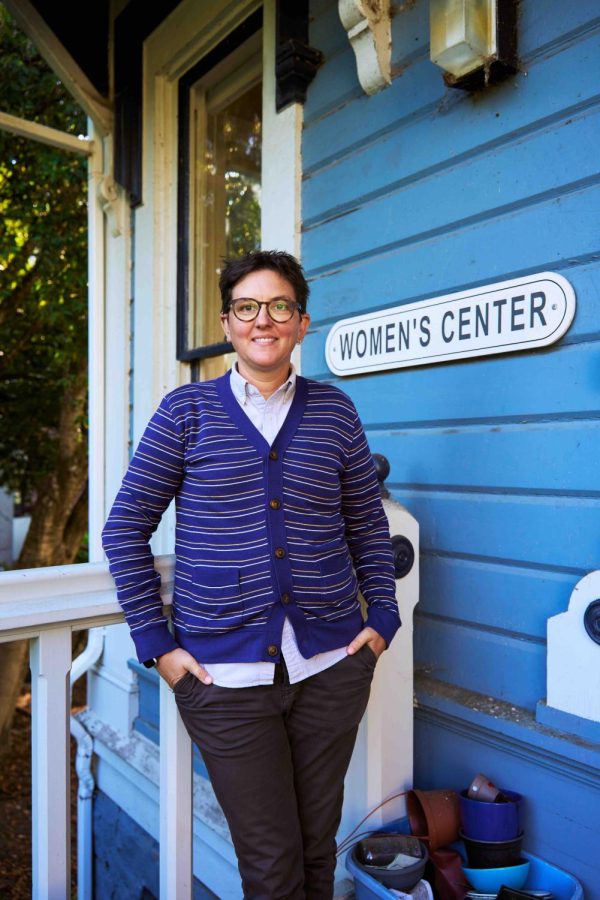Whitney Archer leads with ‘quiet guidance and leadership’
Whitney Archer (she/they) poses outside of the Hattie Redmond Women & Gender Center on October 5th, 2022 in Corvallis, Oregon. The Hattie Redmond Women & Gender Center (WGC) serves as a campus focal point for projects directed at addressing women’s issues on campus, in the community-at-large, and globally. As an open community of leaders inspiring change, they provide advocacy, resources, and opportunities to transform ideas into positive action and reality.
November 3, 2022
“Just getting people together is radical.”
Whitney Archer, the current director of the Hattie Redmond Women and Gender Center, said this while reflecting on the eight years they’ve worked here.
Archer received their graduate degree from Oregon State University and coming from a small undergraduate university, they initially felt that OSU was “too huge” to stick around.
However, after doing an internship with the center, they found a love for the work and realized that “helping folks not feel so isolated in a place that feels so giant, is what kept me here and is what continues to keep me here,” Archer said.
Archer’s main roles as the center director revolve around listening to and supporting students. They also work to be in connection with resources across campus in order to act as a reference to assist students.
In addition, they serve on numerous committees on campus to advocate for students like the faculty senate, the Center Against Rape and Domestic Violence and the Sexual Health Advocacy and Response Group. They also serve as an associate professor for the Diversity and Cultural Engagement department where they continue to support students.
Since taking the position as center director eight years ago, Archer has continued to grow the space, work toward centering racial justice, expand the scope of a gender lens and build community year after year. They were responsible for reaching out to the student protestors to get the center’s name changed to more accurately reflect the work they are doing.
“I have really tried to listen to students and colleagues to help the space be as inclusive as possible,” Archer said.
Since starting, Archer has felt a change in themselves from wanting this space to be fully centered on activism to realizing the power of joy.
Looking to the future, Archer hopes the center can continue to be a space of community, growth and transformation. They emphasized how in order to transform and change our campus, we must also be willing to transform ourselves.
“Whitney is really good at providing quiet guidance and leadership,” said Hazel Curley O’Malley, a student employee who works closely with Archer.
The center provides weekly “crafternoons,” or future inclusive game nights, both of which Archer hopes will bring in new faces. The women of color initiative, AYA, also hosts its bi-weekly meetings in the center.
“I want to continue to be transformed by my work here and have [it] spread throughout campus and beyond,” Archer said.






